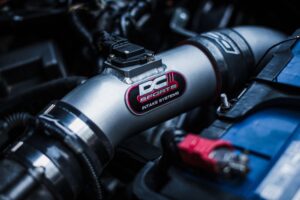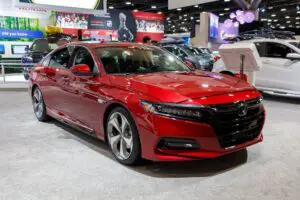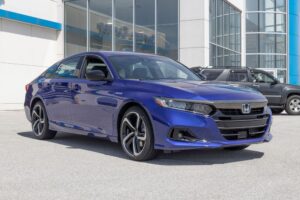Being in production since 1976, you would think that the people behind the Honda Accord would be creating immaculate models, but, just like every car, they too are liable to various issues preventing them from starting.
Surrounding the Honda Accord are various issues that will make you go why won’t my Honda Accord start? Most of these are due to the battery, fuel, and starting system of the car.
Luckily for you, I have listed down the main problems here for your convenience:
- Dead Battery And Battery Charge
- Faulty Fuel Pumps
- Faulty Fuel Injectors
- Bad Battery Cables
- Bad Starter
Now that you have an idea of what could be the main issue, you may be wondering how you should narrow it down and how to fix the problem.
You will have to keep reading the article to find out!
Table of Contents
- 1 What Would Cause A Honda Accord To Not Start?
- 2 Frequently Asked Questions
- 2.1 Q1. Why Won’t My Honda Accord Start With New Battery?
- 2.2 Q2. Why Won’t My Honda Accord Start Even with A Jump?
- 2.3 Q3. Why Won’t My Honda Accord Start But Lights Work?
- 2.4 Q4. Why Won’t My Honda Accord Start But Cranks?
- 2.5 Q5. Why Won’t My Honda Accord Start Just Clicks?
- 2.6 Q6. Why Won’t My Honda Accord Start In The Cold Weather?
- 2.7 Q7. Why Won’t My Honda Accord Start After I Get Gas?
- 2.8 Q8. Why Won’t My Honda Accord Start But Radio Works?
- 3 Conclusion
What Would Cause A Honda Accord To Not Start?

Vehicles can have many reasons for not starting, and the Honda Accord is no different.
I have already listed above the sources of starting issues for the Honda Accord.
Most of the time, a car does not start due to problems with the starter, fuel system errors, and battery issues.
I will be taking a closer look at them below.
1: Dead Battery And Battery Charge
A dead battery is one of the biggest and most common reasons why most cars do not start, as the battery is often easily overlooked.
The engine relies on the battery to output enough power to generate a spark that the engine needs to ignite the fuel.
A weak or dead battery cannot generate enough power to make this spark which leaves a sad clicking sound as your engine goes nowhere.
A weak battery can also complicate things as it allows the lights and accessories of the car, such as the radio to work but does not let the engine start up.
The battery charge depends on many different factors, including the weather, which is why you need to ensure that the battery remains in top condition and is replaced once its natural life has ended, which usually lasts around 4 to 5 years.
Beyond this, there is no reason to keep your old battery either, so you might as well sell it off or dispose of it safely and securely.
What Should You Do About It?
- Firstly, it is recommended that you make sure that it is the battery’s fault first, and for this, you must carry out a voltage test via a mechanic.
- If the battery fails the test and you need a boost, getting a jump-start from another car with a healthy battery is a good idea.
- From here on out, you should ensure your battery is well maintained and kept safe from the elements.
- Once your battery has exhausted 4 to 5 years, you should get a replacement battery and safely dispose of your old battery.
2: Faulty Fuel Pumps
If your Honda Accord has been making a whining noise when you try and start it, then you should have an immediate response to check the fuel pumps of the car, as they are most likely the reason why your car may not be starting.
A fuel pump is integral for your car’s working as it pumps up the fuel from the tank to the fuel injector, which in turn supplies it to the engine.
Long story short, if your fuel pumps are defective, then it is likely that your engine is not getting any fuel at all, despite you having a full tank.
If you have had any stalling and misfires before not being able to start the car, then all signs should point to the fuel pumps, which may have slowly given out over time.
This can further be proven if you have faced lower mileage and the engine sputtering at high speeds.
In any case, you should get to a mechanic as soon as possible to assess whether the problem is in the fuel pumps or not and then work accordingly.
What Should You Do About It?
- If you have been facing any of the symptoms mentioned above, then you are likely dealing with a faulty fuel pump.
- There is no easy fix for a faulty fuel pump that you can carry out at home. More often than not, any temporary fix will not work either.
- Your best bet is to go to a mechanic and have the fuel pumps replaced, as getting them fixed may be more trouble than they are worth.
- Once you have new fuel pumps or have opted to fix the old ones, you should not focus on maintaining them, so they don’t break away again.
- This means ensuring you use high-quality fuel, regularly changing fuel filters, and adding anti ethanol agents.
3: Faulty Fuel Injectors
If your fuel pumps are all fine and dandy, you should also look at the fuel injectors, as they more or less display the same symptoms as the fuel pumps when they are falling apart.
A fuel injector efficiently and effectively sprays the fuel into the car engine and has replaced old carburetors since they are more efficient and reduce emissions.
As such, they are a crucial part of your Honda Accord and will prevent the vehicle from even starting if the part is damaged or broken.
If you have seen recent fuel leaks, rough idling, misfiring, vibrations, and poor mileage, you can bet the cause is a faulty fuel injector.
Each car cylinder has a fuel injector, so you need to do your best to maintain all of them, depending on the number of cylinders of your car.
This usually occurs when you have a huge buildup of contaminants inside your fuel which can eventually clog up the injector, causing it to spray weakly or in a weird pattern or not at all, which can ultimately cause the engine not to start.
What Should You Do About It?
- If you are under the impression that your Accord’s engine has faulty fuel injectors, you will not be able to fix them at home.
- You should set a date for the mechanic and get them fixed or replaced as soon as possible.
- If the mechanic says the injector is dead, you will have to get a new one.
- Once you have a new fuel injector, you should make sure that you treat it right by using high-quality fuel to reduce the build-up of contaminants.
- Furthermore, you should regularly replace the fuel filters to catch any remaining contaminants.
4: Bad Battery Cables
When dealing with problems in starting your Honda Accord, your instinct is to check the battery.
Many people over-commit to having the battery checked that they neglect to assess the battery cables, which are equally important when starting the car’s engine.
The battery cables are responsible for supplying the electricity in the car’s electrical system and are given a lot of pressure when dealing with this task which is why even a bad battery cable can cause major issues which prevent the car from starting.
The easiest way to look for bad battery cables is to look for frayed wires. These will almost immediately let you know that you have a bad battery.
If your battery is on the lower side in a voltage test or you have dim headlights, you can also assume that you have a few bad cables on your hands.
What Should You Do About It?
- Bad battery cables cannot be fixed and have to be replaced.
- Corroded or broken battery cables must be replaced as soon as possible. You can do this yourself or a mechanic if you lack the expertise or tools.
- You can use a wrench to remove battery cables from your Honda Accord and trace them to the chassis and car fuse block.
- Loosen the nuts and remove the wires, then replace them, starting with the positive cable and following up with the negative wire.
- Start the car to test your new connection, and apply anti-corrosion protection to prevent further faults.
5: Bad Starter
Unless you have a manual transmission, you would not want a bad start as it will prevent you from starting your Honda Accord entirely.
A bad starter is usually evident when your car turns over but does not catch, making a distinct sound.
As the name suggests, a starter is the main component that allows the engine to suck air and fuel into the cylinders and start the ignition of the fuel, which causes the car to run.
If your starter is not working properly, it is almost guaranteed that your Accord will not start.
A whirring, grinding, and clicking are common noises you hear when the starter is malfunctioning, and this is usually accompanied by smoke or the starter itself staying on after starting.
All this leads to the starter engaging but the motor not starting and the engine not turning.
What Should You Do About It?
- Locate the starter motor, which should be bolted to the transmission housing on the driver’s side.
- Place the screwdriver across the metal contacts on of the starter solenoid and then turn the ignition key for 10 seconds.
- Now if starter motor fails to crank, you are dealing with a defective starter motor and should have it replaced as soon as possible.
- While there are multiple ways you can start the Honda Accord with a bad starter, it is not recommended to do so.
- Instead, you should have a mechanic replace it to avoid any damage to the engine.
Frequently Asked Questions
Q1. Why Won’t My Honda Accord Start With New Battery?

While you may have a new battery, you should also take the time to replace the battery cables, as they may also be the root of the problem.
If not, your fuel system may have some issues, and if that is not the case, then the cause can likely be an issue with the starting motor or starter switch.
Q2. Why Won’t My Honda Accord Start Even with A Jump?
If you have jump-started your Honda Accord but still do not start, you can determine that you may have bad battery cables since the charge is not the issue.
Instead, you could have a bad starter, which could be why your car is not cranking. If it is cranking, the problem is likely in your fuel system.
Q3. Why Won’t My Honda Accord Start But Lights Work?
Even though your lights are working, your battery may still be the issue why your Honda Accord is not starting.
This could be due to a lack of charge sufficient for the lights to turn on but not crank the engine.
Another reason could be a busted starter or even the starter switch, which you should look at.
Q4. Why Won’t My Honda Accord Start But Cranks?
If your engine is cranking, this is a clear sign that the battery and the starting system are in good shape. Most likely, the problem lies in the fuel system of the Honda Accord.
Engines only need fuel and a spark to work. Since you are getting that spark, the logical conclusion would be that it is not getting enough fuel.
Q5. Why Won’t My Honda Accord Start Just Clicks?
Clicking is never a good sound for Honda Accords as it could mean many things, such as a dead battery or a broken alternator.
A lot of the time, the car’s electrical system is to blame, which is why you should make sure to recharge the battery or replace the alternator if your car clicks.
Q6. Why Won’t My Honda Accord Start In The Cold Weather?
Cold weather can cause the oil to thicken, making it hard for the Honda Accord to start up. The weather reduced battery output as well.
Depending on the situation, you may need a new battery or to have your fuel changed. Spark plugs may also be fouled out, so you will have to replace them.
Q7. Why Won’t My Honda Accord Start After I Get Gas?
Just because you have more gas does not mean your Accord engine is getting it. You must properly diagnose your fuel system and see where the issue lies.
If all is well, your main problem is elsewhere, in the battery or with the starter. It is a good idea to check these things next.
Q8. Why Won’t My Honda Accord Start But Radio Works?
Just like the lights, the radio working does not mean that the Honda Accord’s battery has sufficient power to crank the engine.
Bad cables or a bad battery may be the reason why your car is not starting. The problem could also lie in the starter solenoid or the ignition switch, so make sure to check them out as well.
Related: What Are The Worst Years For The Honda Accord?
Conclusion
With so many models under the brand and having been in production for decades, the Honda Accord is a very popular Japanese vehicle that, even in its 10th generation, is attracting a lot of attention, fans, and customers.
Despite all of this, there are still issues that can arise in the Honda Accord, which raise the question as to why won’t my Honda Accord start?
Sadly, most of these issues can happen to any car and are a universal problem that, hopefully, you can avoid now that you have read this article and know what issues prevent the car from starting.

I am Tahir Azam, and I have been writing amazing articles for TaxiHack for as long as I can remember. I know everything that is to know when it comes to automobiles and is always on top of industry news and developments. While I am not an expert by any means, I pride myself on knowing the ins and outs of many different problems and, of course, their solutions. The articles on our website are some of the best and well-researched content that you will find, and I spend countless hours making sure this remains to be true. This is why I ask you to take your time out and read some of my articles, especially if you find a topic that resonates with you or is something you are looking into. This way, you will find the perfect mix of information and tips on your desired topic. Learn more about Tahir.



